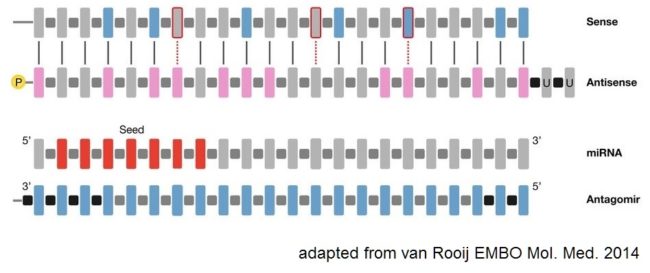
Presenter: Andrea Kasinski, Purdue University, USA
Date: May 15, 2019
Description:
MicroRNAs (miRNAs) have emerged as powerful regulators of the genome and, through concerted efforts to identify their function and evaluate their ability to alter cell growth in vitro and in vivo, some have gained favor as potential therapeutics. Although these miRNA-based approaches can revolutionize the way that diseases are diagnosed and treated, there are multiple considerations and challenges that one must consider when embarking on a miRNA-based therapeutics approach. This webinar will breakdown the basic steps needed for designing a miRNA therapeutic. Topics will range from selecting an appropriate miRNA candidate to identifying a suitable delivery platform to achieve safe and robust targeting. Both miRNA overexpression and miRNA sequestration approaches will be discussed including backbone modifications that are being made to the miRNA, or sequestering agent that can improve stability, and thus reduce in vivo dosing.
Recording of the Webinar: Click Play to View
In addition, Prof. Kasinski would like to make the slides available for download: Kasinski OTS webinar
Presenter Biography

Andrea Kasinski, Purdue University, USA
Andrea Kasinski, PhD, is the William and Patty Miller Assistant Professor of Biological Sciences at Purdue University. After finishing her PhD with Dr. Haian Fu at Emory University, Dr. Kasinski worked as a Post-Doc with Prof. Frank J. Slack at Yale University.
Her laboratory focuses on identifying biologically important RNAs whose misexpression drives the tumorigenic process and utilizes this information to design, develop, and implement RNA-based therapeutics. She showed therapeutic benefit for both lentiviral- and systemically delivered miR-34 in multiple murine cancer models. These studies were instrumental in advancing the first miRNA therapeutic MRX34, into clinical trials.
Dr. Kasinski is also involved in developing and testing novel small RNA delivery platforms. In collaboration with Dr. Philip Low, she developed FolamiRs – folate-conjugated microRNAs for vehicle-free delivery.






